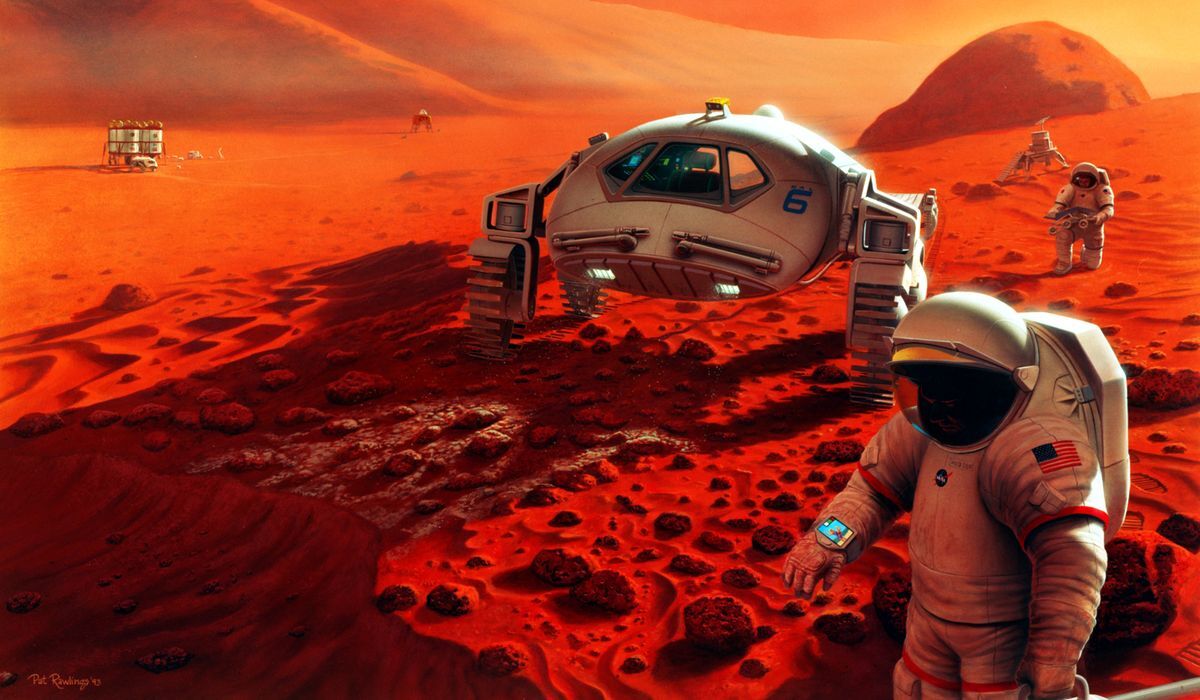One method is epigenome engineering and would target genes advantageous for space. Another method is to combine the DNA of other species (i.e. tardigrades) with human cells to make humans better fit for space.
From lemmit.online
Could well be needed. It’s not fully understood, but human space travel - even to the surface of relatively nearby Mars - might not even be viable. Aside from the radiation issue after leaving the Earth’s magnetosphere, zero gravity changes the body. When astronauts land they’re carefully assisted to get out and placed onto soft bedding. From Chris Hadfield’s autobiography, merely standing up after coming home from a few weeks/couple months on the ISS was like standing on a bed of needles. It took about 2 weeks to be able to move around again, which makes me wonder how we’ll ever get people on the surface of Mars. The Moon is pretty easy in comparison, much lower gravity and not that far away.
The complexities involved, even with solutions, are just too much for current humans. Genetically engineering ourselves could work, though I’m more in favor of just digitizing ourselves ha.
Stick my brain in a jar and give me a mech body and I’d be ballin
I don’t even need the brain.
There’s a few problems:
- radiation being higher than on Earth
- 6 months travel to Mars needs many supplies
- there’s no construction material in outer space. Therefore, no or few spare parts. Everything that’s lost (think leaks) can only be replenished after 6 months.
- artificial gravity?
- has to be self-sustaining and able to develop and grow.
Did anyone else have the thought, we will have to do this just to survive on earth soon?
We’d better start modifying other animals and plants too.

Headed from the clown timeline of the 2020s to the hell timeline of the 2090s.
Yeah, that’ll be cute. By the time they figure out all the best relevant tweaks to the DNA, they’ll end up with a form of ‘human’ that won’t be able to reproduce with natural humans. Which means it won’t be the same species anymore, it won’t be human.
Edit: They ought to be thinking more like genetically modifying plant foods to be more capable of growing on Mars. Tweaking human DNA doesn’t change the fact that humans need food, and there ain’t exactly apples and corn growing on Mars ya know.
Can we name one Khan?
I have a sci fi novel I written with characters that were engineer this way. In my novel they were unsuccessful.
This is concerningly similar to All Tomorrows.
Makes me think of Man Plus by Pohl
“would target genes advantageous for space”
I am afraid it is only this simple in computer games
You can now breathe nitrogen! Aaand, you will get instant cancer and die at age 3.
Do you want real life Exo Squad? Because this is how you get Exo Squad.
Joking aside, while this may be faster, I think it would safer in the long run to keep focusing on actually getting to space and achieving faster than rockwt/thruster propulsion and let evolution work with that.
You want real life beltalowda?
Hey, all we need is flying combat exoskeletons and we can have real life Exo-Squad!
Ousters when?








